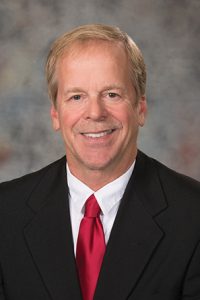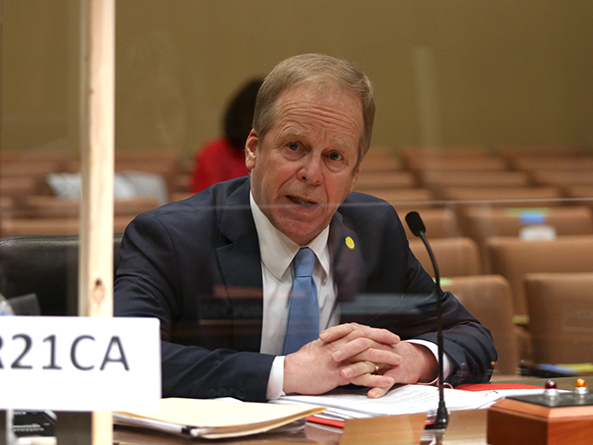State would define, pay classroom expenses
The Education Committee heard testimony March 1 on a proposed constitutional amendment intended to decrease Nebraska’s reliance on property taxes to fund public education.
The amendment would require the state to pay all classroom expenses — as defined by the Legislature — related to the operation of public elementary and secondary schools in Nebraska beginning July 1, 2024.
If passed by the Legislature, LR21CA, sponsored by Albion Sen. Tom Briese, would place the amendment on the November 2022 general election ballot.
Briese said Nebraska ranks roughly last in the country in terms of state funding for public schools and nearly first in reliance on property taxes to fund K-12 education.
“LR21CA is a vehicle that can correct this,” he said. “And we can allow the voters to decide if this is how they want to fix it.”
Briese estimated that the state would direct $2.7 billion to public schools each year under the proposal, compared to approximately $1.1 billion currently.
He said the Legislature should include supplies, materials, teacher salaries and benefits and contractual services such as special education in its definition of classroom expenses, although it could review that definition periodically.
Briese said LR21CA would not change the state’s school funding formula or collective bargaining practices. School districts would retain the ability to collect property taxes to address any “perceived shortcomings” in funding, he said.
Bruce Rieker testified in support of the resolution on behalf of the Nebraska Farm Bureau and six other agricultural organizations. He said the proposed amendment would force the Legislature to rebalance education funding, reducing the property tax burden on the state’s agriculture industry.
Kyle Fairbairn testified in opposition to LR21CA on behalf of the Greater Nebraska Schools Association and three other education groups. In addition to the proposal’s high cost, he said, it presents many unknowns, such as whether the federal government would continue to help Nebraska schools pay for special education if the Legislature is required to cover those expenses.
The committee took no immediate action on the resolution.


